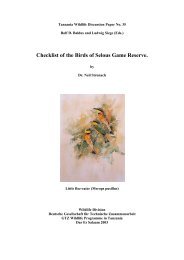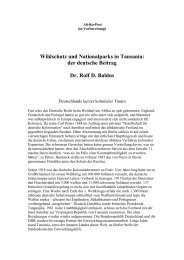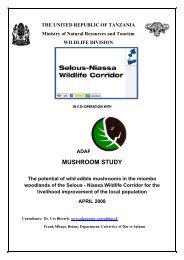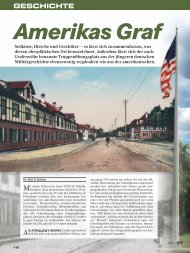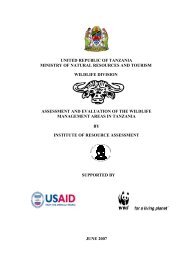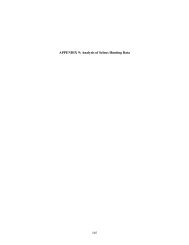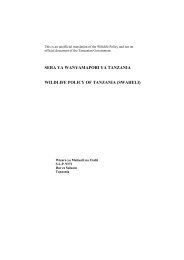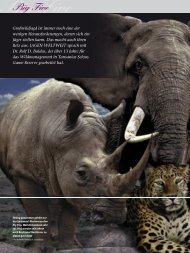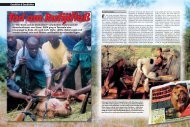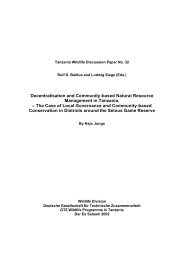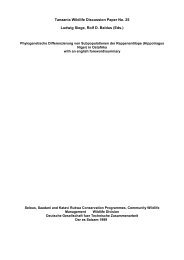African Indaba Articles - wildlife-baldus.com
African Indaba Articles - wildlife-baldus.com
African Indaba Articles - wildlife-baldus.com
You also want an ePaper? Increase the reach of your titles
YUMPU automatically turns print PDFs into web optimized ePapers that Google loves.
Opposition to my views was expected. It came from an unexpected quarter though. The SA Hunters’ andGame Conservation Association (SAJWV) published an official statement on October 17 th (in Afrikaans)totally rejecting hunting in national parks. I did not receive it directly from the association, but through ananonymous email in November, although SAJWV had published my referenced article in the association’smagazine (maybe without reading it first).I wonder whether those who authored the statement have made it clear to their many members that theSAJWV point of view plays well into the hands of those in the Panel of Experts who want to stop huntingeven in provincial parks.SAJWV mentions also that only about 0.5% of South <strong>African</strong>s are hunters and that the parks systembelongs to all people, yet this very system probably did not have more than 4.5 million visitors in 2005(including KZN Parks and of course international tourists). This means considerably less than 10% of South<strong>African</strong>s are enjoying our national parks (or are able to afford enjoying them), yet as a nation ALL have tofoot the bill.It seems odd a South <strong>African</strong> hunting association still believes in the bureaucracy and the notoriousapparatus of “fortress conservation” or rather “fortress preservation”. Under this concept market-basedpolicies (and with it sustainable use of natural resources) were excluded from <strong>wildlife</strong> management inprotected areas.Fortress Preservation used the argument of “preserving the untouched wilderness”. Yet none of the parkswithin the South <strong>African</strong> Parks system is untouched by human hand. All are fenced in by wire and people.One just has to drive along the western boundary of Kruger National Park to see the conflict potential offortress preservation!The solution for a sustainable long-term future for South Africa’s national parks will be a paradigm shiftfrom preservation towards incentive-driven-conservation. Controlled hunting where it is ecologicallysustainable will be a small, yet important building block. It will have positive triple bottom line repercussions.Benefits will accrue to the <strong>com</strong>munities living around the park and to Black Economic Empowerment (social& cultural), there will be the freeing of essential funds from the national budget for national priorities such asAIDS/HIV projects and low cost housing (economic), and last not least conservation will benefit with fundsbeing available for land acquisition and general self-sustainability of the parks.Robert H Nelson said in the “Independent Review, (Summer 2003)” in an article titled “EnvironmentalColonialism – ‘Saving’ Africa from <strong>African</strong>s” that the “myths of Africa are more attractive than therealities”. Did SAJWV fall into this trap?Nelson concludes his article (download it at the link provided) with “Fantasy sells, and millions of people in[the urban centers of] Europe and the United States enjoy images of the Garden of Eden, whether in Africaor elsewhere in the world. By contrast, the rural people in these areas who are directly affected by the settingaside of park lands constitute a small and less moneyed minority that has less political influence both withtheir own national governments and in international arenas.”This is the reason why we have a huge elephant problem in Southern Africa; this is the reason why ourparks struggle to balance the budgets: this is the reason why Black Economic Empowerment in <strong>wildlife</strong>conservation does not advance and last not least this is the reason why utterly necessary “incentive-drivenconservation”struggles to achieve mainstream public recognition.55



